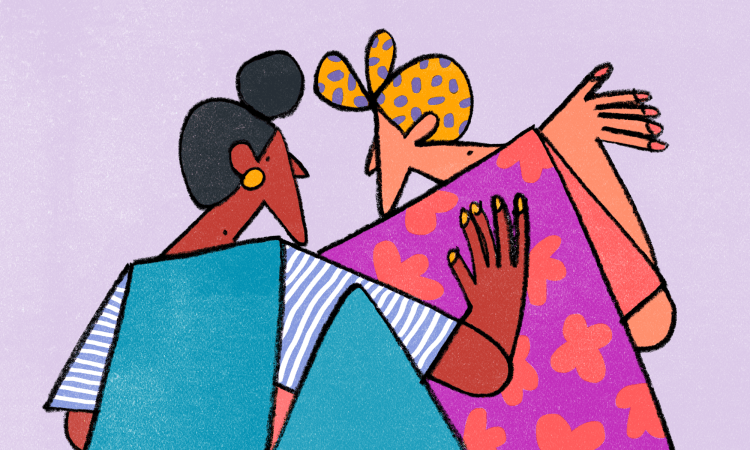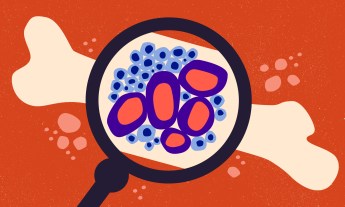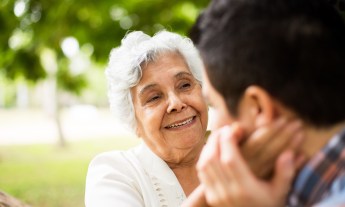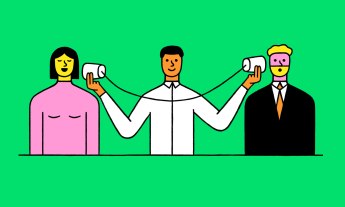
A friend’s diagnosis can feel overwhelming and confusing, but you don’t need to let fear and uncertainty keep you from being there for them. Journalist Suleika Jaouad offers some practical advice for how you can help.
At age 22, Suleika Jaouad was fresh out of college and ready to take steps towards a career as a war correspondent. “But the real world that I found took me into a really different kind of conflict zone,” she says in her TED Talk. She was diagnosed with leukemia and given just a 35 percent chance of long-term survival. In an instant, her dreams narrowed down to one goal: Staying alive.
For the next four years, Jaouad endured chemotherapy, clinical trials and a bone marrow transplant. “I adapted,” she says. “I became fluent in medicalese, made friends with a group of other young cancer patients, built a vast collection of neon wigs and learned to use my rolling IV pole as a skateboard.” She also wrote a column about her experiences for The New York Times. Now 30 and cancer-free, she shares advice for anyone who has a friend with cancer.
Cancer is life-altering — not just for the person diagnosed and their family but for their friends, too. The problem is, when you’re the friend of a cancer patient, it can sometimes be hard to know what you can offer, particularly since such a significant event may feel like it requires help and attention from family alone. But by being consistent, loving and flexible with your time, you can make a huge difference in your friend’s life.
Here are some guidelines to keep in mind:
Take the time to process your own feelings about the diagnosis. That way, you don’t have to ask your friend to help you cope with your sadness. This is a good time to seek help from your own support network as you come to terms with this change and how you can best adapt to this new phase of their life — and your relationship with them.
Don’t ignore your friend out of fear. It can be difficult to know what to say to someone who has just been diagnosed with cancer — and when people don’t know what to say, they often say nothing at all. It’s better to show up than to err on the side of silence. Your friend needs your love and support more than ever. It’s OK to be honest and even start with something like “I don’t know what to say.” Follow this up with words of support such as “I love you” or “I am here if you want to talk.” Just being present can be enough.
Research their diagnosis on your own time. Or, ask their caregiver for information. It’s physically and emotionally draining for a recently diagnosed person to have to repeat medical details over and over again.
Don’t offer unsolicited medical advice. It’s also not helpful to compare their diagnosis with your uncle’s cancer; no two cancers are ever the same. And while this may seem obvious, avoid stories of people with unhappy endings — they are unhelpful.
Allow your friend to express sadness and fear. It’s instinctive for you to help by offering positivity, with phrases such as “everything will be okay,” but be careful not to minimize their concerns. Your friend will need to process their own reaction in their own time.
Bring laughter and lightness with you when you visit. It can transform a hard day. Don’t be afraid to talk about subjects other than cancer, and if you’ve always joked around with them, keep it up. The point is to avoid pity and treat them normally, as you did before their diagnosis.
Besides visits, check in frequently with texts, notes and emails. Be sure to say there’s no need for them to reply or send a thank-you note in case your friend is not feeling up to responding. Knowing that you are there will be hugely meaningful to them.
Keep your word as best you can. If you commit to helping or to visiting, it’s important that you follow through on your promise. When you’re ill, time travels differently, and the loss of an expected visit can change the shape of a day or even a whole week. On the flip side, do always ask before you stop by, and be flexible and understanding if your friend has to cancel. Illness and its side effects are unpredictable.
Avoid asking “how can I help?” It can be hard for people to ask for what they need, so instead offer concrete, practical ways of providing support, whether driving them to and from appointments, babysitting, cleaning, delivering meals, doing chores, or tending their garden.
Don’t forget their caregiver. Cancer doesn’t just affect a patient, but an entire family. If it’s appropriate, offer to go to doctor’s appointments in their caregiver’s place. Give their caregiver a gift certificate for a massage, or offer them a weekend away so they can rest and relax. When you visit, bring a meal so that the caregiver does not have to host.
Keep checking in, even after treatment is over. For many patients, the weeks and months after cancer treatment are over can be some of the most challenging. Returning to work — not to mention dealing with responsibilities like rent and other bills — can be a massive adjustment, no matter how well your friend may seem, so don’t assume the hard times are past.
For many survivors and their caregivers, cancer is not something from which you simply “move on”. The physical and emotional imprints of illness can linger long after remission, and your friend will deeply value your understanding of this for the rest of your relationship.
Watch her TED talk now:











